Everyone loves to talk about the metabolism. And we seem to be constantly looking for products and foods to boost it.
But do they actually work?
Before we look at how we can actually increase metabolism, we need to look at the components that make up our metabolism.
There are 4 major components of our metabolism:

Basal Metabolic Rate (BMR) – Your basal metabolic rate is the biggest component and makes up about 60% of your total daily energy expenditure (TDEE). It is the energy that your body uses while at rest to perform daily life sustaining functions such as breathing. Factors affecting BMR include age, gender, weight, body composition, genetics etc. Muscle mass seems to be the component that has the capacity to change BMR considerably. Muscles are metabolically active. This means that if the ratio of muscle loss to fat loss is higher, it can contribute to a drop in BMR (which is not what you want).
Non-Exercise Activity Thermogenesis (NEAT) – NEAT is the energy that you use for all activity that is not formal exercise (it is a pretty big component!). This includes standing, talking, walking, typing, fidgeting etc. NEAT can account for up to 20-30% of TDEE and is actually one of the most adaptive components of metabolism, either increasing or decreasing in response to an energy surplus or deficit.
Exercise Activity Thermogenesis (EAT) – The energy that you expend during formal exercise. This will depend on the activity, intensity and duration of the exercise. This component makes up about 10-15% of TDEE.
Thermic Effect of Food (TEF) – The energy needed to digest, absorb and process food. This will be different for different foods. The TEF for protein, carbohydrates and fats are 20-30%, 5-10% and 0-3% respectively. Foods that are higher in protein and fibre tend to have higher TEF. As a whole, TEF makes up about 10% of TDEE.
As you can see, if you want to boost your metabolism in ways that will actually bring about a considerable amount of change, then you need to work on gaining/preserving muscle mass, consume adequate protein (to maintain/gain muscle mass and increase TEF), move more and get enough sleep.
Research has shown that when it comes to fat loss, individuals who go on a higher protein diet with exercise, lose more overall fat mass and in some cases, gain muscle mass compared to those who go on a lower protein diet.
This is not surprising as muscle is more metabolically active and protein has the highest thermogenic effect – AKA BOOSTING metabolism.
Martens et al. looked at the effect of high protein vs high carbohydrate diets on energy expenditure in weight stable individuals. After 12 weeks, energy expenditure (AKA metabolism) decreased significantly in the high carb low protein diet group. This overall decrease was attributed to the decrease in basal metabolic rate (from a slight decrease in muscle mass) and the decrease in dietary induced thermogenesis (AKA thermic effect of food).
To sum it up, here are 4 ways to boost your metabolism:
1. Build and maintain muscle mass
The best way to achieve this is via strength training! If you are completely new to this, I highly suggest working with a qualified trainer to tailor the session to your needs, ensure each move is executed properly with good form and to help you make progress. Progressive overload is important as your muscles will adapt over time.
2. Consume adequate protein
Ensure that you are consuming a wide variety of protein. How much you need will depend on several factors including individual goals and preferences. In general, you can aim for between 1.4-1.6g of protein per kg of bodyweight.
Here are some great sources of protein:
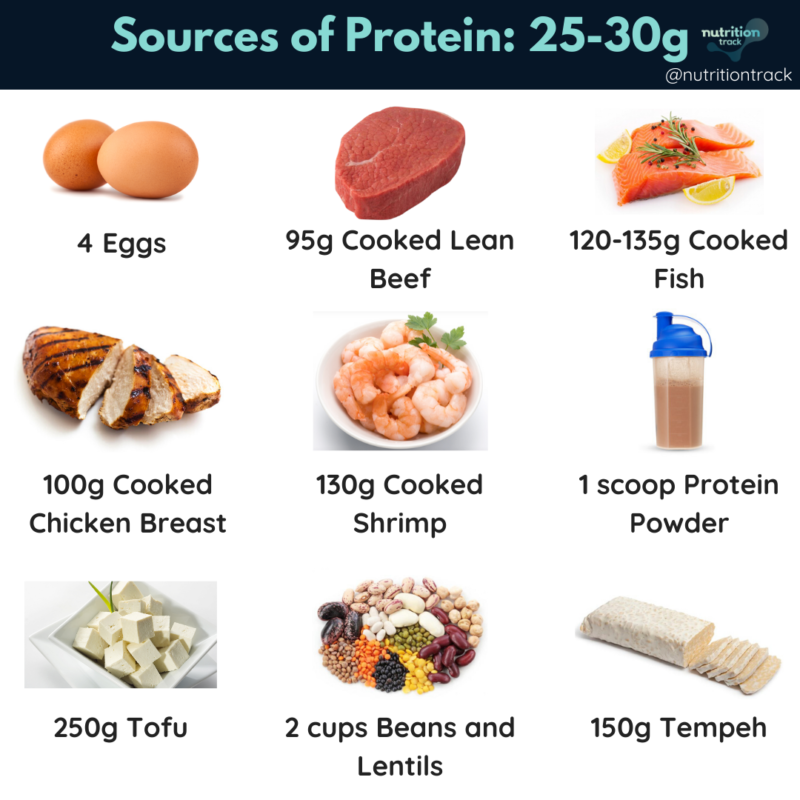
3. Move often
Our desk bound jobs may mean that we are more sedentary throughout the day, even if we exercise regularly! Keep in mind that formal exercise is about 10-15% for most people (formal exercise is STILL IMPORTANT!). This is why I highly encourage keeping active outside of formal exercise. This will come under the NEAT component, which makes up about 20-30% of your total daily energy expenditure!
Set a reminder to get up every 35-45 mins for a quick stretch.
Here are some other ideas:
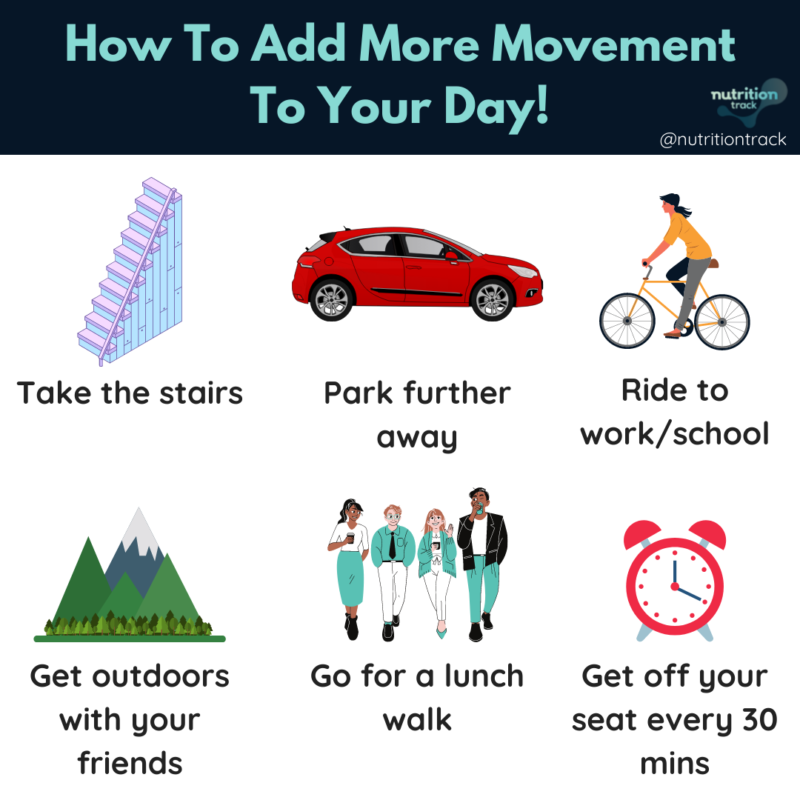
4. Get enough sleep
When it comes to fat loss and the metabolism, sleep is the most underrated tool! Why sleep?
One study found that in a calorie deficit, insufficient sleep led to a higher proportion of muscle loss vs fat loss. Knowing the importance of muscle mass, you definitely do not want to be losing muscle!
Insufficient sleep has also been associated with an overall increase in energy intake due to (but not limited to) the increase in the hunger hormone ghrelin and a decrease in leptin.
One study found that there was an overall increase in food reward, cravings, hunger and self-selected portion size with sleep curtailment. There was a 12.4% increase in total calories and portion size was significantly higher for rice and potato chips. Participants also selected snacks that were higher in fat. I like how this study used a modest reduction of sleep (33% from their habitual sleep hours) rather than setting a specific number of hours, which would reflect real world experiences.
In short, insufficient sleep can potentially affect muscle mass, appetite, portion sizes and food choice.
Also, when you don’t get enough sleep, your energy levels are affected. You may not have the energy to exercise or even think about nutrition!
And of course, in general, sleep is very much needed for our overall health and wellbeing. Make is a priority!
TLDR:
Forget about “metabolism boosting” products and focus on these 4 elements!
References:
- Longland, T. M., Oikawa, S. Y., Mitchell, C. J., Devries, M. C., & Phillips, S. M. (2016). Higher compared with lower dietary protein during an energy deficit combined with intense exercise promotes greater lean mass gain and fat mass loss: a randomized trial. The American journal of clinical nutrition, 103(3), 738-746.
- Martens, E. A., Gonnissen, H. K., Gatta-Cherifi, B., Janssens, P. L., & Westerterp-Plantenga, M. S. (2015). Maintenance of energy expenditure on high-protein vs. high-carbohydrate diets at a constant body weight may prevent a positive energys balance. Clinical Nutrition, 34(5), 968-975.
- Nedeltcheva, A. V., Kilkus, J. M., Imperial, J., Schoeller, D. A., & Penev, P. D. (2010). Insufficient sleep undermines dietary efforts to reduce adiposity. Annals of internal medicine, 153(7), 435-441.
- Yang, C. L., Schnepp, J., & Tucker, R. M. (2019). Increased hunger, food cravings, food reward, and portion size selection after sleep curtailment in women without obesity. Nutrients, 11(3), 663.


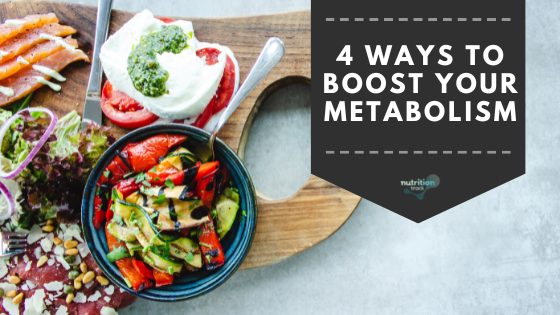
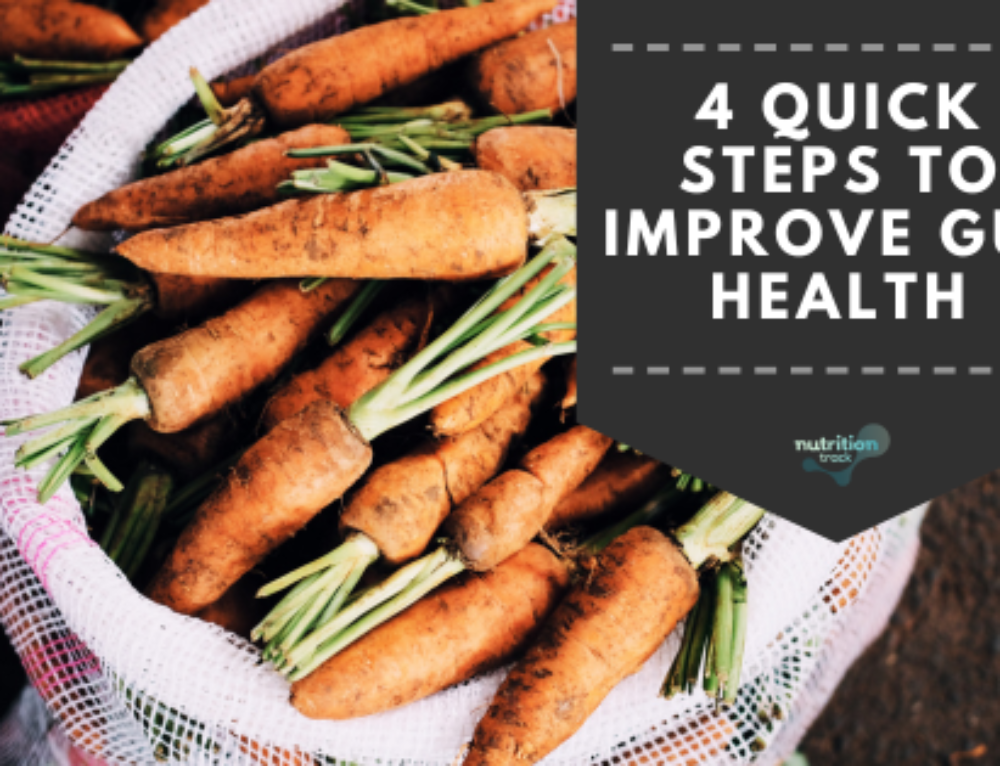


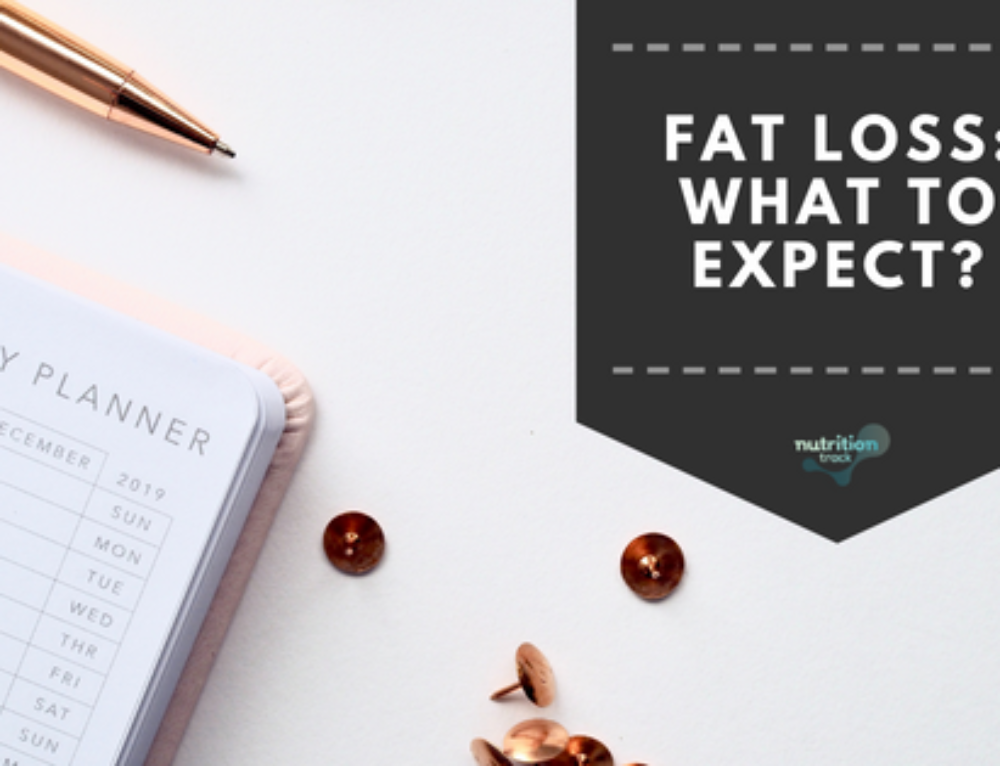
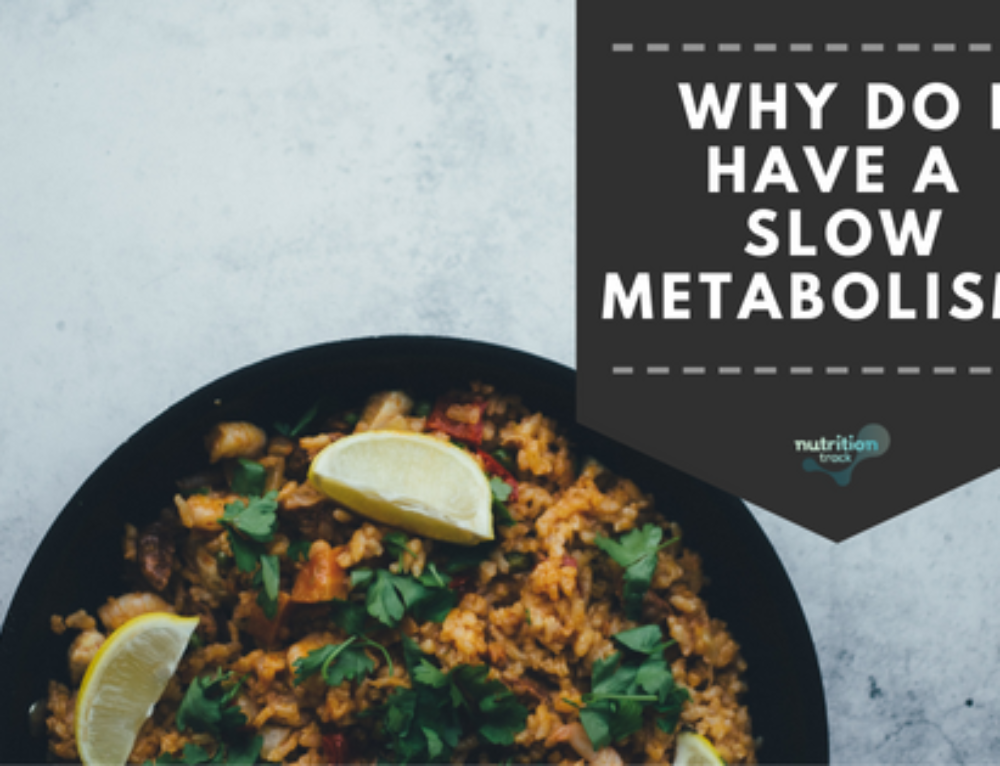
Leave A Comment